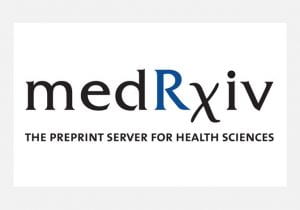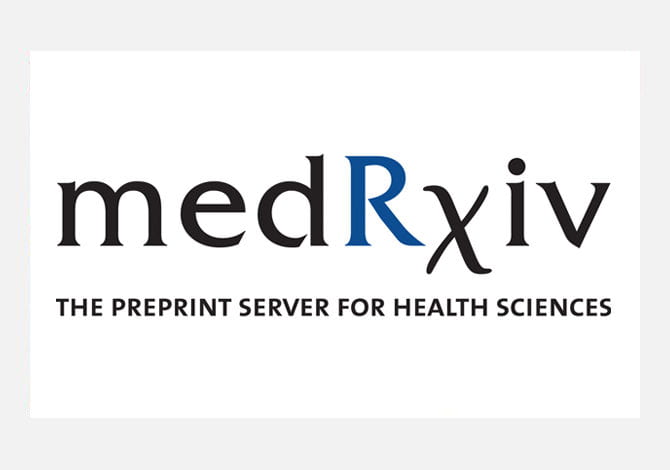 While Covid-19 has upended many industries around the globe, faculty, staff, and students at The George Washington University have persisted in doing what they do best--researching, learning about, and compiling publications about some of the most pressing healthcare issues of our time. Since the start of the pandemic, researchers and students associated with the George Washington University School of Medicine and Health Sciences, the Milken Institute School of Public Health, and the School of Nursing have published over fifty peer-reviewed articles related to Covid-19. The Himmelfarb Library has compiled a collection of these publications within our institutional repository, Health Sciences Research Commons. The Covid-19 Publications by GWU Authors collection highlights research by students, faculty, and staff and will be updated on a regular basis. Have a publication that needs to be added? Simply email hsrc@gwu.edu with a link to your publication and we will be happy to include your research.
While Covid-19 has upended many industries around the globe, faculty, staff, and students at The George Washington University have persisted in doing what they do best--researching, learning about, and compiling publications about some of the most pressing healthcare issues of our time. Since the start of the pandemic, researchers and students associated with the George Washington University School of Medicine and Health Sciences, the Milken Institute School of Public Health, and the School of Nursing have published over fifty peer-reviewed articles related to Covid-19. The Himmelfarb Library has compiled a collection of these publications within our institutional repository, Health Sciences Research Commons. The Covid-19 Publications by GWU Authors collection highlights research by students, faculty, and staff and will be updated on a regular basis. Have a publication that needs to be added? Simply email hsrc@gwu.edu with a link to your publication and we will be happy to include your research.
Author: bsmith91
Revisiting MedRxiv in the Age of COVID-19
Earlier this year we published a post on the new preprint server, medRxiv (pronounced ‘Med Archive’). We touched on the benefits of archiving research via this service, as well as pointing out the potential downsides. But with the COVID-19 pandemic forcing many to work from home and observe social distancing guidelines, preprint services like medRxiv help researchers share their preliminary findings as they seek to better understand this new disease and discover potential treatment options.
With new information on COVID-19 released on a near daily basis, medRxiv is an excellent place to archive research and disseminate it within the medical community.The archival server has a specialized collection dedicated to research pertaining to the study of COVID-19. At the time of the publication of this post, the preprint server holds approximately 4204 articles. With Altmetrics, researchers are able to track the level of engagement their article receives.
Articles located on the preprint server have not undergone the rigorous peer review process.It is imperative that the research located on medrRxiv is not used in a clinical setting nor shared with the media or public. As we learn more about this disease, how best to fight it and how to prevent its spread, members of the medical community must observe best practices and avoid sharing potentially harmful misinformation to the public or media.
The research and news on COVID-19 is constantly evolving. There is still much to learn about this novel coronavirus and medical professionals are working tirelessly to add to the expanding literature on this disease. MedRxiv, the preprint server, has a collection dedicated exclusively to preliminary research on COVID-19. As such, it is an excellent and free resource that puts researchers in contact with each other.
If you would like to learn more about medRxiv or if you’re interested in submitting research to the server, be sure to visit https://www.medrxiv.org/.
Saving the Canceled Conference with Health Sciences Research Commons
The COVID-19 pandemic has caused dramatic upheaval in the world of professional conferences. Most conferences have either been postponed to a later date or canceled for the year, leaving scholars with posters and presentations that can't be shared with their peers until late 2020 or 2021 at the earliest. Fortunately, the Himmelfarb Library has an excellent resource available that allows for asynchronous virtual conferencing. With the Health Sciences Research Commons, (HSRC), members of the George Washington University Medical, Health Sciences, Public Health and Nursing communities have the ability to archive and present their research to scholars around the globe.
With Health Sciences Research Commons, it is possible to archive presentation materials such as poster PDFs or videos via native streaming or a 3rd party platform (i.e. YouTube). If you have content that you would like to share, simply send an email to hsrc@gwu.edu and we will be happy to find an appropriate collection, create the necessary metadata, and send you a link to your archived projects. Have questions related to archiving and potential future publications? We are happy to answer those questions as well.
Using the HSRC as a presentation platform is an asynchronous experience which is different from than the in-person conference. But archiving your project in HSRC has unique benefits such as the ability to generate usage statistics using PlumX metrics and Altmetircs located on the right hand side of an entry.
As we adapt to a life and workflow that is reliant on virtual workspaces, it is important that we continue to collaborate and share current research with the larger medical community. The HSRC is a wonderful space for archiving and presenting research. If you have any additional questions on using the repository, feel free to reach out to Sara Hoover, Metadata and Scholarly Publishing Librarian at shoover@gwu.edu.
Please note: This blog post was updated on May 18, 2020 to better reflect the process for submitting to the HSRC.
‘Get Yourself Published; Promote Your Research’ Webinar Series is Still Ongoing!
The Himmelfarb Library Scholarly Communications Committee continues its webinar series, “Get Yourself Published; Promote Your Research,” with a new video out today. The series guides you through the publication process and also highlights resources that are useful in promoting your research articles. Webinars are published bi-weekly and are located on the Himmelfarb Library’s website.
 In this week’s webinar, ‘Measuring Impact: Quantifying the Effects of Your Research,’ Thomas Harrod will discuss metrics and how researchers can use it to measure the impact of their research.
In this week’s webinar, ‘Measuring Impact: Quantifying the Effects of Your Research,’ Thomas Harrod will discuss metrics and how researchers can use it to measure the impact of their research.
"How do you determine the value and impact of a published article? In this webinar, we’ll look at the two most common ways of accomplishing this task, including using traditional metrics (citations-based) and the newer altmetrics. We’ll explore some of the common examples of each of these metrics and we’ll also look at some Himmelfarb Library resources you can use to access this data and apply it to your own work."
This webinar goes live Wednesday, March 25 at noon! Be sure to save the dates for April's webinars.
ORCIDs: Maintaining Your Online Identity: Wednesday, April 8, 2020 12pm EST
Copyright for Authors: Wednesday, April 22, 2020 12pm EST
MedRxiv: A Medical Sciences Preprint Service
Are you sitting on an unpublished research article? Would you like feedback or critique of your findings from your peers in your field or related fields? Are you worried that your research may have already been covered by another researcher? If you’ve answered ‘yes’ to any of these questions, then check out medRxiv, the latest tool for researchers in the medical field.
MedRxiv (pronounced “med-archive”) is a free, preprint service that allows medical researchers to submit and distribute unpublished research articles. The service was created by Cold Spring Harbor Laboratory (CSHL), Yale University and BMJ, though the server is owned and operated by CSHL. The service accepts research from numerous medical and health sciences fields, including, but not limited to:
- Dermatology
- Health Policy
- Nursing
- Pediatrics
- Surgery
As a researcher, there are some factors that you should consider prior to archiving your work with a preprint service. Some publishers do consider archived preprints to count as a prior publication and thus might not be willing to consider publication in a given journal. To find out more about whether a specific journal counts an archived preprint as a prior publication, utilize the website Sherpa Romeo. This free website provides information about publisher copyright and self-archiving policies that can help you decide whether submitting your research to a preprint archive like medRxiv is the right choice for disseminating your research.
Submitting your work to medRxiv is a straightforward process. Once you’ve completed your research article and are prepared to share it with others, go to medrxiv.org and click ‘SUBMIT.’ You will be redirected to a page which will provide details about the service, the submission process, proper formatting and other relevant information. You must register with the website before submitting any research and medRxiv will review submissions for offensive or harmful content. Once the article passes the submission process, it will be available to view via the search engine.
MedRxiv puts researchers around the world in contact with one another. It is a great way to receive feedback on your work or connect with individuals who may be involved in similar research. While the website can be easily accessed, it is important to note that the articles and relevant data have not been peer-reviewed. Therefore, you should not use the information as established and accepted scientific and medical facts. Also, you should avoid citing material from preprints in your own publications. Despite these limitations, preprint archives such as medRxiv still offer an excellent way to learn about current and pending health sciences research.
If you’re interested in using medRxiv or would like to know more, be sure to check out the website at https://www.medrxiv.org/.





